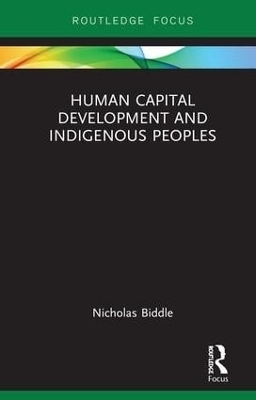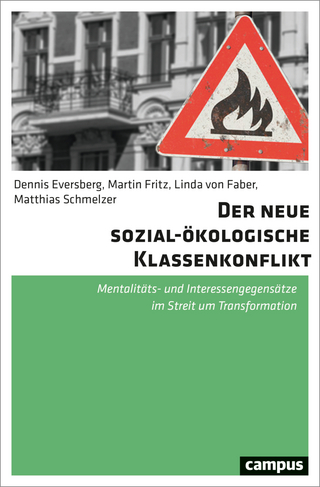
Human Capital Development and Indigenous Peoples
Routledge (Verlag)
978-1-138-49836-5 (ISBN)
The basic Human Capital Model states that individuals, families and communities will invest in education until the benefits of doing so no longer outweigh the costs. This trade-off is often considered in monetary terms. Here the author broadens cost-benefit definitions to include health and wellbeing improvements alongside social costs driven by discrimination and unfair treatment in schools. With coverage of the Americas, Asia, Australia and New Zealand, the book critiques existing approaches, and provides an outlet for the self-described experiences of a diverse set of indigenous peoples on the breadth of educational costs and benefits. Combining new quantitative analysis, cross-national perspectives and an explicit policy focus, this book provides policy actors with a detailed understanding of the education decision and equips them with the knowledge to enhance benefits while minimising costs.
This book will appeal to policy-engaged researchers in the fields of economics, demography, sociology, political science, development studies and anthropology, as well as policy makers or practitioners who are interested in incorporating the most recent evidence into their practice or frameworks.
Nicholas Biddle is Associate Professor in Public Policy at the Australian National University and Associate Director of the ANU Centre for Social Research and Methods. He is also a Senior Fellow at the Centre for Aboriginal Economic Policy Research and a Fellow of the Tax and Transfer Policy Institute.
Preface – Standpoint and position
Part 1: A human capital approach to Indigenous development
1. Introduction – Why human capital, and why Indigenous peoples
2. The human capital model and its application to Indigenous peoples
3. The determinants of Indigenous human capital development and barriers to development
Part 2: Programs that help improve the human capital development of Indigenous peoples
4. Improving the schooling experience of Indigenous peoples
5. Indigenous specific education institutions
6. Programs that impact on Indigenous peoples indirectly – Conditional Cash Transfers and Indigenous peoples in Latin America
Part 3: Using the Human Capital model to improve the outcomes of Indigenous peoples
7. Education for all: Using the Human Capital Model for education equity in the 21st Century
| Erscheinungsdatum | 29.09.2018 |
|---|---|
| Reihe/Serie | Routledge Studies in Indigenous Peoples and Policy |
| Zusatzinfo | 17 Line drawings, black and white; 17 Illustrations, black and white |
| Verlagsort | London |
| Sprache | englisch |
| Maße | 138 x 216 mm |
| Gewicht | 453 g |
| Themenwelt | Naturwissenschaften |
| Sozialwissenschaften ► Ethnologie | |
| Sozialwissenschaften ► Pädagogik | |
| Sozialwissenschaften ► Soziologie ► Spezielle Soziologien | |
| ISBN-10 | 1-138-49836-X / 113849836X |
| ISBN-13 | 978-1-138-49836-5 / 9781138498365 |
| Zustand | Neuware |
| Informationen gemäß Produktsicherheitsverordnung (GPSR) | |
| Haben Sie eine Frage zum Produkt? |
aus dem Bereich


